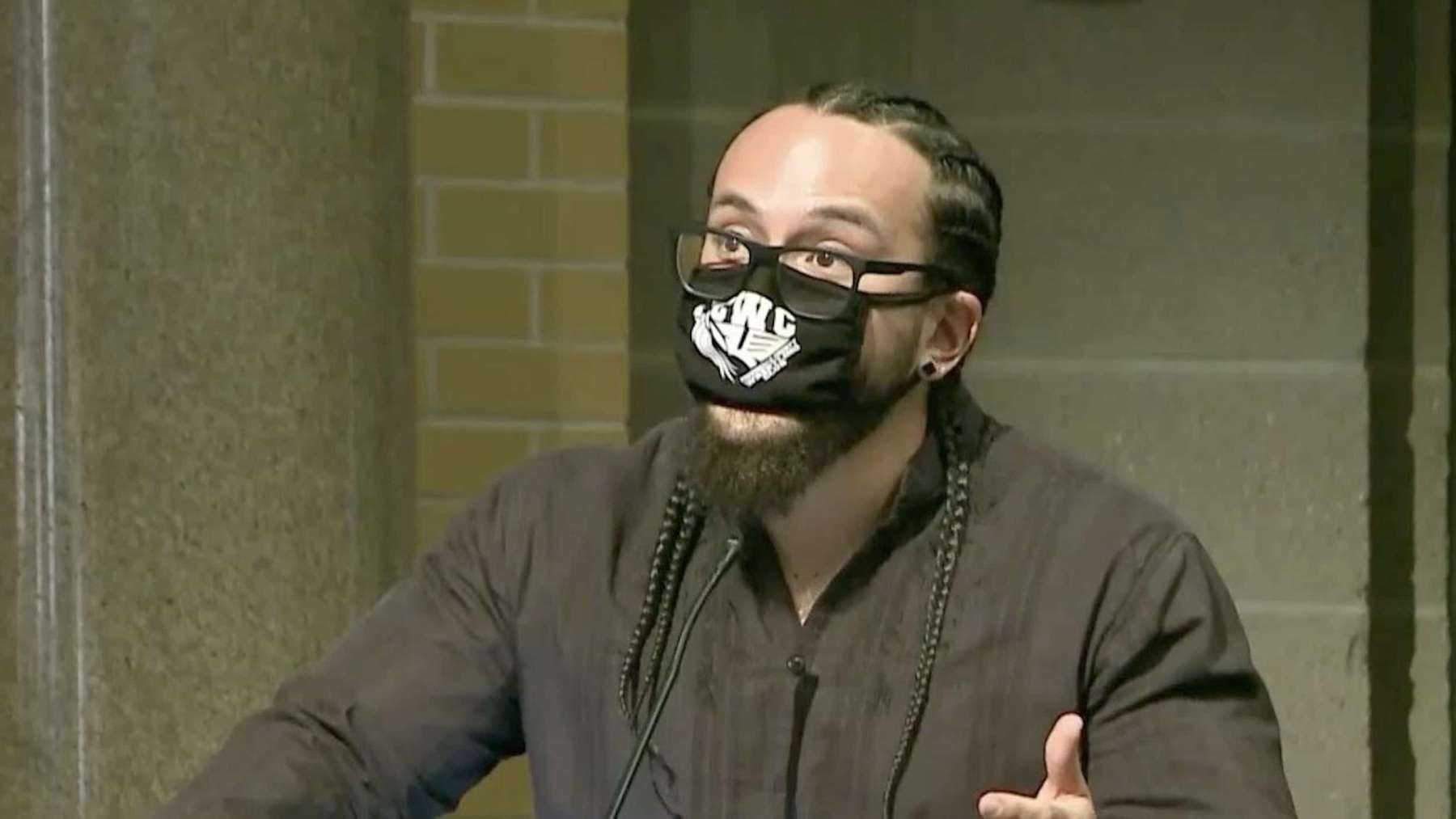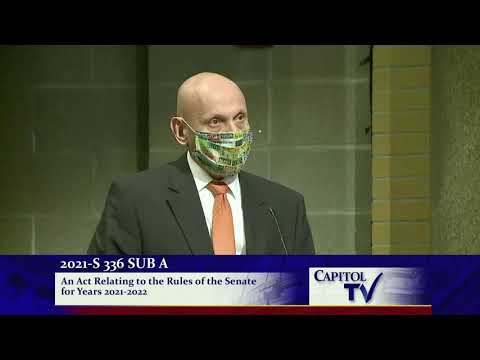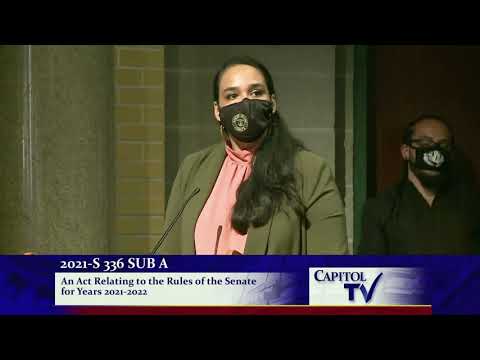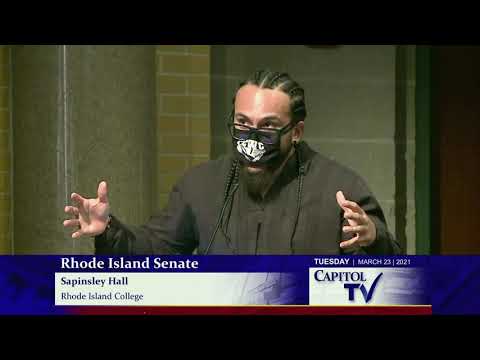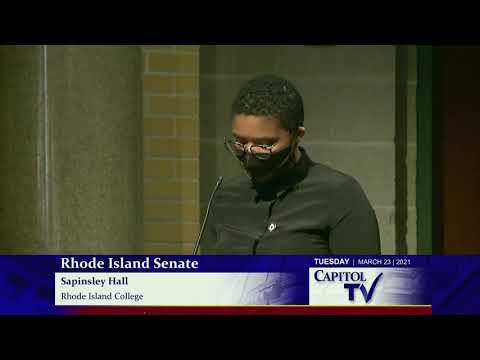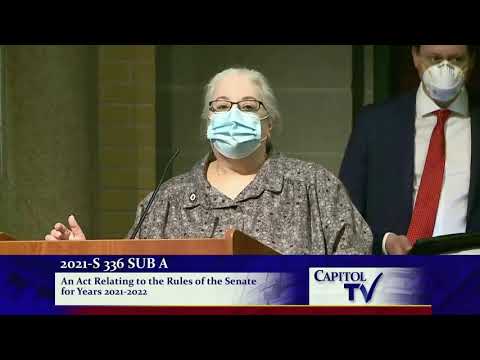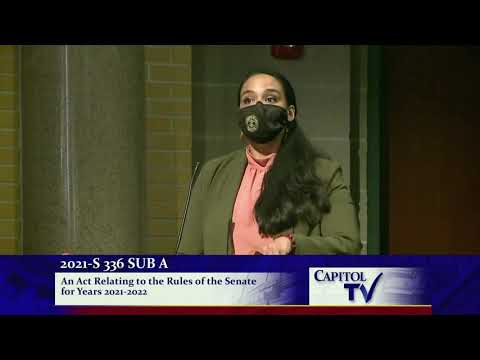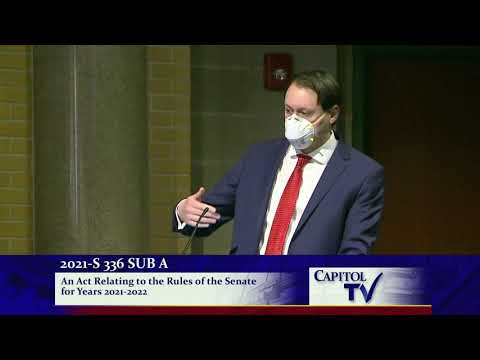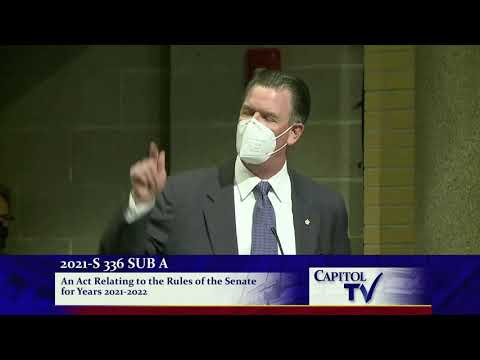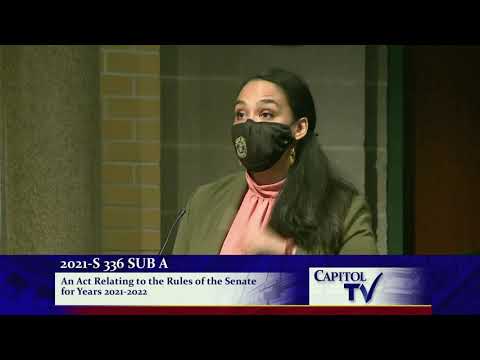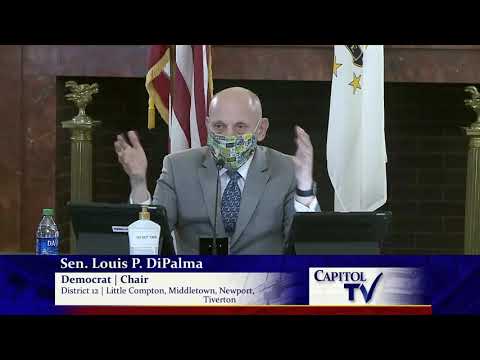RI Senate punts on rules reform – Votes to mandate public testimony under oath
The Senate passed on amendments that would bring more democracy to the Senate, such as amending the process of holding bills for further study, opting instead for the status quo, and an oath for those offering public testimony.
March 24, 2021, 7:08 pm
By Steve Ahlquist
Note: After this piece was published, the Senate Communications Director Greg Pare took issue with the headline, saying, “the Senate absolutely did not vote ‘to mandate public testimony under oath.’” However, as explained in the piece, an oath to testify is required “at the discretion of the committee chair” meaning that a chair may, at their discretion, mandate an oath from the public at their discretion.
On Tuesday the Rhode Island Senate adopted the rules, S0336Aaa, by which it will conduct its business both this legislative session and in the next year as a well. Normally a process that gets little attention, the rules of both chambers of the General Assembly have come under scrutiny as the public realized that these rules are used to consolidate power to House and Senate leadership, and disempower voters.
This year the Senate has decided to make four changes, two substantive and two technical, according to the chair of the Senate Rules Committee, Senator Louis DiPalma (Democrat, District 12, Little Compton, Middletown, Newport, Tiverton).
The two substantive changes:
- Oaths – Under the new rules, the chair of a committee may, at their discretion, require those testifying to do so under oath and under the threat of perjury.
- Virtual meetings – codifies the process, already under way at the Senate, of having virtual meetings during states of emergency.
The two technical changes:
- Cleans up the section on decorum and the operation of the Senate.
- Cleans up the section on the use of cellphones.
Senator Meghan Kallman (Democrat, District 15, Pawtucket) immediately put forth an amendment to the Rules, which would remove the attire mandates for guests at the Senate and for the public. The Senate has a dress code, and the bill was amended so that the public would not be subject to a dress code. The amendment passed easily, and was the only amendment to do so.
Senator Senator Jonathan Acosta (Democrat, District 16, Central Falls) thanked Senator Kallman for her amendment, but contended it did not go far enough.
“The use of norms, rules and attire, in practice, only serves to exclude. In the domestic context, it has been associated with sexist policies, policing what women can wear in General Assemblies across our country,” said Senator Acosta. “In the International context, it is closely associated with the struggle between formerly colonized people and their settler colonists.”
Senator Acosta’s amendment struck the dress code section from the Senate rules.
The amendment failed.
The next proposed Rules amendment, also from Senator Acosta, would have changed the criteria for testifying under oath from being at the discretion of the committee chair to being for governmental and corporate representatives invited by the committees to testify. This avoids the problem, noted by the League of Women Voters RI, Common Cause RI and the ACLU of RI, that “some members of the public will understandably be inhibited in speaking before a legislative committee on issues of concern to them, knowing that unless they mark their words extremely carefully, they could potentially be accused of perjury and face criminal charges.”
The amendment failed.
The next proposed amendment, from Senator Tiara Mack (Democrat, District 6, Providence), would have allowed every Senator the opportunity to bring two bills a year directly to the Senate floor for an up or down vote.
The amendment failed.
One phrase advocates and members of the public interested in passing important legislation hate to hear is “held for further study.” An amendment proposed by Senator Samuel Bell (Democrat, District 5, Providence) would make “held for further study” no longer the final action on a bill.
Currently, holding a bill for further study may mean that a bill needs more work and may be modified and reintroduced. In practice, a bill held for further study is often effectively tabled, never to return. Senator Bell’s amendment would have made the reconsideration of a bill held for further study conditional on the sponsor. If the sponsor wanted to bring the bill up for a committee vote, they may.
The amendment failed.
Senator Cynthia Mendes (Democrat, District 18, East Providence) submitted an amendment that would allow the committee members to elect the chair, co-chair and secretary of the Senate committee. Currently those positions, like the committee assignments for all Senators, are at the sole discretion of the Senate President. More democracy is usually considered a good thing, but the majority of the Senate disagreed.
The amendment failed.
When the chair of a committee or the Senate President makes a ruling, a member of the Senate has the opportunity to appeal. The Senate has held that these motions are not debatable, which means that the Senators must immediately vote on whether or not they agree with the chair or Senate President without hearing any arguments from either side. Senator Samuel Bell’s amendment would have allowed discussion on these matters before a vote.
The amendment failed.
The final vote in favor of the Senate Rules was 30-6.
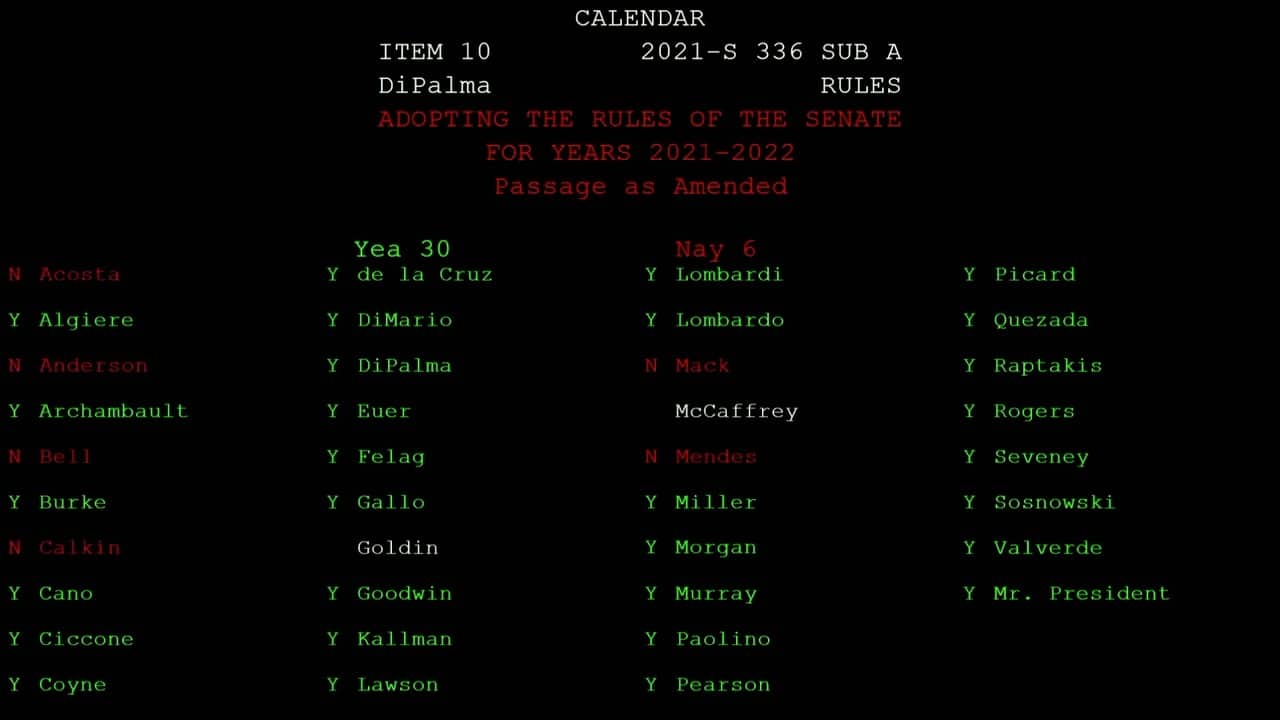
Before finishing, let me note two pieces of video stood out. The first is Senator Stephen Archambault (Democrat, District 22, Smithfield, Johnston, North Providence) mischaracterizing the testimony of people calling into recent Senate Environment and Senate judiciary committee hearings in favor of three bills from Renew RI. Senator Archambault seems to equate people threatening to use democracy to unseat Senators with whom they disagree with actual, illegal threats.
In the next video clip, Senator Mendes explains how it was her treatment by Senators, while she was giving testimony as a member of the public at a Senate Rules committee hearing two years ago, that convinced her to run for Senate.
Finally, here’s the Senate Rules Committee discussion that took place on March 15, 2021.



